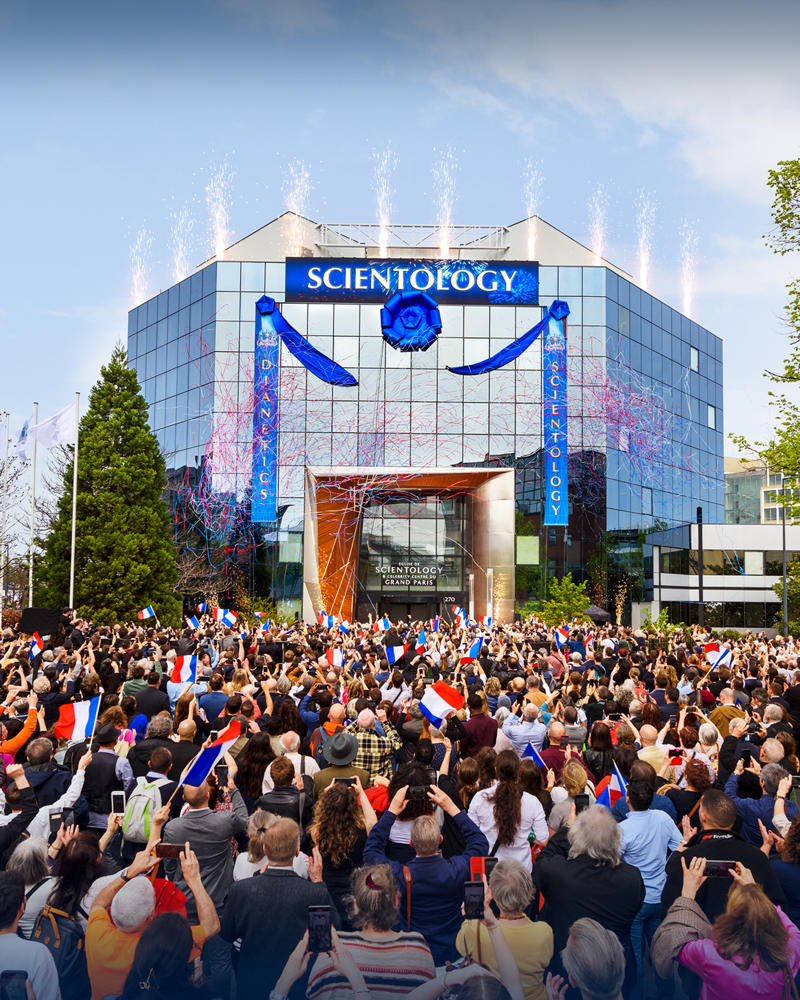The Background of Scientology: From Its Establishing to Existing Day
The Background of Scientology: From Its Establishing to Existing Day
Blog Article
Exposing Myths: Dividing Truth From Fiction About Scientology

Beginnings of Scientology
The beginnings of Scientology trace back to the mid-20th century when L. Ron Hubbard, a scientific research fiction author, started the idea system in the 1950s. Hubbard's growth of Scientology stemmed from his earlier self-help system called Dianetics, which he presented in the 1940s - Scientology. The transition from Dianetics to Scientology marked a change in the direction of a much more comprehensive spiritual philosophy that included facets of psychology, Eastern spiritual practices, and Hubbard's very own theories on human existence
Hubbard's exploration right into the human mind and spirit brought about the production of Scientology as a religion focused around the principle of spiritual enlightenment and self-improvement with a procedure called bookkeeping. Auditing, a form of spiritual therapy, intends to help people conquer mental and psychological barriers, called engrams, that prevent individual growth and recognition.
As Hubbard's trainings acquired appeal, Scientology progressed into a worldwide motion with a considerable following. Despite objections and disputes bordering its practices and beliefs, Scientology remains to draw in fans seeking spiritual gratification and individual growth.
Core Beliefs and Practices

An additional fundamental element of Scientology is the concept of the Thetan, the spiritual significance of a person that goes beyond the physical body. Followers aim to understand and strengthen their link to the Thetan via numerous techniques such as study courses and purification routines.
The Church of Scientology additionally puts a strong focus on the importance of individual responsibility and the idea that individuals have the power to shape their my explanation very own destinies. Through adherence to moral guidelines and the quest of self-improvement, practitioners of Scientology strive to achieve higher degrees of happiness, success, and spiritual fulfillment.
Criticisms and disputes
Amidst Scientology's core ideas and techniques lies a landscape marked by disputes and criticisms that have actually triggered intense this hyperlink debate and examination. In addition, Scientology's status as a tax-exempt spiritual organization in some nations has been a factor of contention, with doubters saying that its techniques are more akin to a business than a religion.
Another area of controversy surrounds the Church's therapy of dissenters and doubters. Reports have actually emerged of harassment, intimidation, and legal risks guided at those who talk out against Scientology. This has actually elevated concerns regarding liberty of speech and the company's commitment to transparency and accountability.
While Scientology has emphatically rejected numerous of these accusations, the disputes and criticisms surrounding the Church proceed to fuel public hesitation and examination.
Scientology's Impact in Society
Scientology's impact expands to the world of mental health and wellness, where its views on psychiatry and psychology have actually triggered arguments within the clinical area. In the world of enjoyment, Scientology's organization with high-profile celebs has brought interest to the religion, both positively and adversely. The involvement of famous numbers in Scientology has, in some instances, served to promote the faith, while in navigate to these guys others, it has actually drawn criticism and elevated questions regarding the church's methods and ideas.
Debunking Common Misconceptions
The Church of Scientology is legally acknowledged as a faith in numerous countries, consisting of the United States, where it has tax-exempt condition. Like other faiths, Scientology gives spiritual advice and practices for its participants.
One more false impression is that Scientology requires its participants to reduce connections with their family members. In fact, the church highlights the value of family relationships and encourages participants to preserve healthy and balanced connections with their liked ones.

Verdict
In final thought, it is very important to separate reality from fiction when talking about Scientology. By analyzing its origins, core ideas, controversies, and impact in culture, we can unmask usual misconceptions surrounding this religion. It is important to come close to the topic with a unbiased and essential frame of mind in order to recognize Scientology properly and right.
Rooted in a structure of spiritual enlightenment and personal development, Scientology's core beliefs and practices encompass a varied variety of principles and routines. Central to Scientology is the belief that people are immortal spiritual beings that have forgotten their real nature. The participation of well-known figures in Scientology has, in some situations, offered to popularize the religion, while in others, it has drawn objection and increased questions concerning the church's ideas and techniques.
The Church of Scientology is legally identified as a religion in lots of nations, including the United States, where it has tax-exempt standing. Like various other religions, Scientology provides spiritual guidance and methods for its members.
Report this page